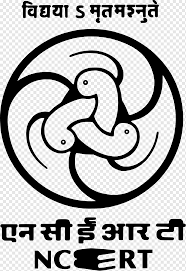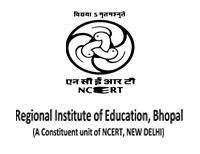To enroll in a Diploma in Counselling & Guidance program, submit an application with academic records, possibly attend an interview, and fulfill any prerequisites. Admission is granted upon acceptance.
Admission Process for Diploma in Counselling & Guidance
The admission process for a Diploma in Counselling and guidance typically involves submitting an application along with academic transcripts, letters of recommendation, and a personal statement detailing one's interest in the program. Some institutions may require an interview as part of the evaluation process. Eligibility criteria can vary, but a high school diploma or equivalent qualification is generally the minimum requirement. Successful candidates are admitted to the program, which equips them with the necessary knowledge and skills to pursue a rewarding career in counseling and guidance, helping individuals cope with personal and emotional challenges.
Admission Process for a Diploma in Counselling & Guidance:
Embarking on a journey toward a Diploma in Counselling and guidance is a significant step toward a fulfilling and impactful career in the field of mental health and emotional support. This diploma equips individuals with the knowledge, skills, and ethical principles necessary to help others navigate the complexities of life, making it a highly sought-after qualification. However, to embark on this transformative journey, one must successfully navigate the admission process, which often includes an entrance examination. In this comprehensive guide, we will explore the admission process, prerequisites, and tips for excelling in the entrance exam for a Diploma in Counselling & Guidance program.
Understanding the Admission Process:
-
Eligibility Criteria: The first step in securing admission to a Diploma in Counselling & Guidance program is to meet the eligibility criteria. Typically, this includes a minimum educational qualification, which is usually a high school diploma or its equivalent. Additionally, some institutions may require prior coursework in psychology or related fields.
-
Application Process: Once you meet the eligibility criteria, you will need to complete the application process. This often involves submitting an online or paper application form along with the required documents, such as transcripts, letters of recommendation, and a statement of purpose. It's essential to pay close attention to the application deadlines and ensure that all necessary documents are submitted accurately.
-
Entrance Examination: Many institutions offering a Diploma in Counselling & Guidance program require applicants to take an entrance examination. The purpose of this examination is to assess the candidate's aptitude and knowledge in relevant areas. The entrance exam is a critical component of the admission process and plays a significant role in the selection of candidates.
Crucial Tips for Excelling in the Entrance Exam:
-
Understand the Exam Format: Start by understanding the format of the entrance examination. Is it multiple-choice, essay-based, or a combination of both? Knowing the structure of the exam will help you prepare effectively.
-
Review Relevant Material: The entrance exam will likely cover topics related to psychology, counseling techniques, and ethical principles. Review your high school psychology notes and consider investing in preparatory materials or courses to refresh your knowledge.
-
Practice Time Management: Time management is crucial during the exam. Allocate a specific amount of time to each section or question and stick to it. Practicing with timed mock exams can help you develop this skill.
-
Enhance Problem-Solving Skills: The entrance exam may include scenario-based questions that require problem-solving skills. Practice analyzing situations and proposing appropriate solutions to sharpen your abilities in this area.
-
Emphasize Ethics and Professionalism: Given the ethical nature of counseling and guidance, expect questions related to ethical dilemmas and professional conduct. Familiarize yourself with ethical guidelines and principles in the field.
-
Seek Guidance and Support: Don't hesitate to seek guidance from current students, alumni, or faculty members who can provide insights into the entrance exam and share their experiences. They may offer valuable tips and resources.
-
Stay Calm and Confident: On the day of the exam, stay calm and confident. Anxiety can hinder your performance. Remember that you have prepared diligently, and you are well-equipped to tackle the exam.
 1 Years
1 Years
 Diploma
Diploma
 Arts
Arts
 Full Time
Full Time









 back
back

